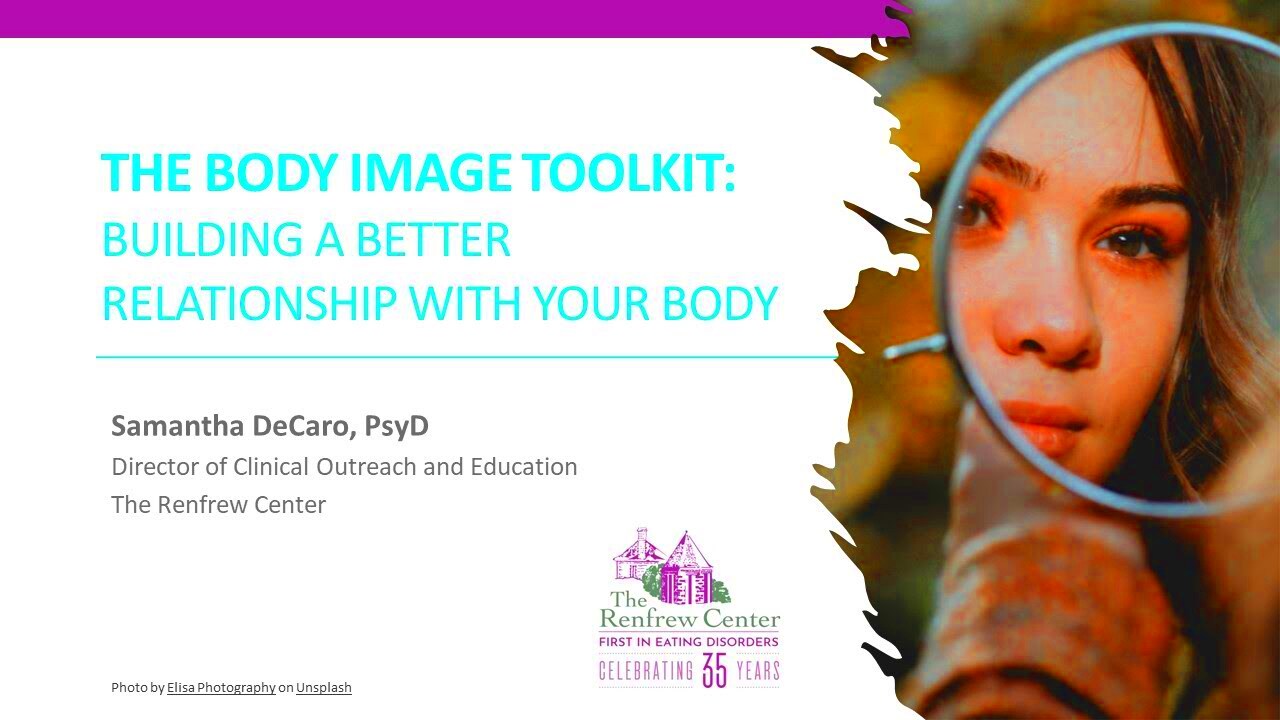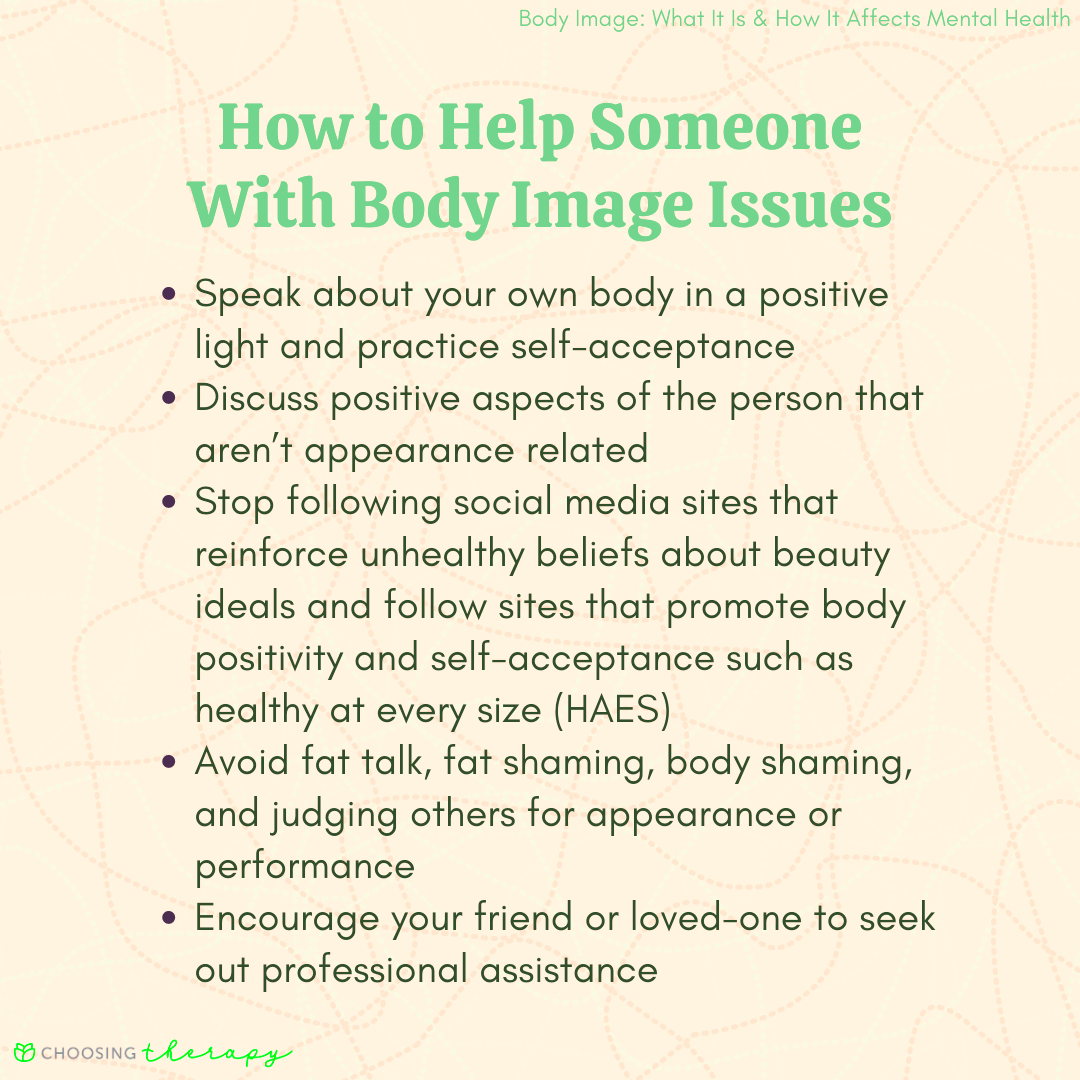Body image issues can have a significant impact on personal relationships, especially when one partner is struggling with how they see themselves. It’s not uncommon for someone to feel insecure about their body, but when those feelings are intense or persistent, they can affect how they interact with their partner. As a partner, it’s important to understand what body image issues are and how they can influence not just self-perception, but also how they relate to others. A compassionate approach can make a huge difference in helping your loved one feel supported and valued.
Understanding the Impact of Body Image on Mental Health

Body image issues don’t just affect how someone looks at themselves in the mirror – they can also take a toll on mental health. When someone is dissatisfied with their body, it can lead to feelings of anxiety, depression, and low self-worth. These mental health challenges can affect daily functioning, relationships, and overall well-being. Here are some of the common mental health effects:
- Depression: Negative body image can contribute to persistent sadness and feelings of hopelessness.
- Anxiety: Worrying about appearance can lead to increased stress and social anxiety.
- Eating Disorders: Conditions like anorexia or bulimia may stem from an unhealthy focus on weight and shape.
- Social Withdrawal: Individuals may avoid social situations or intimacy due to fear of judgment or feeling self-conscious.
Understanding these links can help you offer the right kind of support, making your partner feel heard and understood during tough times.
How Body Image Affects Self-Esteem and Confidence

Body image directly influences self-esteem and confidence. If a person perceives their body negatively, it can lead to a lack of self-worth, affecting how they engage in various areas of life, from work to social situations. Confidence, which is key in maintaining healthy relationships, may dwindle if someone is constantly worried about their appearance. Here are a few ways body image affects self-esteem:
- Constant Self-Criticism: People with negative body image tend to be overly critical of themselves, which lowers their self-worth.
- Fear of Rejection: Negative body image can make someone feel unworthy of love or attention, leading to fear of being judged or rejected.
- Lack of Assertiveness: Low self-esteem can lead to difficulty standing up for oneself or expressing desires and needs in a relationship.
Supporting your partner in building a healthier body image can improve their self-esteem and help them develop greater confidence, both in themselves and in their relationship with you.
Signs Your Partner Might Be Struggling with Body Image

It can be difficult to spot when your partner is struggling with body image issues, especially since many people tend to hide their insecurities. However, there are several signs that may indicate your partner is dealing with negative body image. Recognizing these signs early can help you offer the support they need. Here are some common signs to watch out for:
- Frequent Complaints About Appearance: If your partner often expresses dissatisfaction with their body or makes negative comments about their looks, it could be a sign of deeper body image issues.
- Social Withdrawal: A partner who avoids social situations or intimacy may be struggling with body image. They may feel ashamed or self-conscious about how they look in front of others.
- Over-Exercising or Restricting Food: While exercising and eating healthy are important, extreme behavior around food or exercise can be a sign of a negative relationship with body image.
- Comparing Themselves to Others: Constantly comparing themselves to others or seeking validation through social media can indicate underlying insecurity about their body.
- Excessive Focus on Weight or Shape: If your partner is constantly talking about their weight, measurements, or shape, it could be a sign that they are preoccupied with how they look.
If you notice any of these signs, it’s important to approach your partner with care and sensitivity to offer the support they need in a non-judgmental way.
Creating a Safe Space for Open Communication

One of the most effective ways to support a partner struggling with body image issues is by creating a safe, non-judgmental space for open communication. When your partner feels heard and understood, they’re more likely to share their feelings and concerns. Here’s how you can create that space:
- Be an Active Listener: Pay close attention to what your partner is saying without interrupting. Sometimes, just being a good listener can provide a sense of comfort and validation.
- Show Empathy: Let your partner know that you understand and care about their feelings. Use phrases like, “I can’t imagine how hard this must be for you,” to show empathy.
- Avoid Criticism: When discussing sensitive topics, avoid criticizing your partner’s feelings or experiences. Instead, offer encouragement and understanding.
- Encourage Vulnerability: Let your partner know that it’s okay to be open about their struggles. When they feel safe expressing their emotions, they’re more likely to open up.
- Respect Their Pace: It’s important to allow your partner to share when they’re ready. Avoid pushing them to talk about things they aren’t comfortable with yet.
By fostering a safe space, you’re giving your partner the opportunity to heal and be vulnerable with you. Communication is key in building trust and understanding in your relationship.
Providing Emotional Support Without Judgment
When your partner is struggling with body image issues, providing emotional support is essential. However, it's important to offer that support without judgment, as this can make a huge difference in how they feel about themselves. Here’s how you can offer emotional support in a constructive, compassionate way:
- Be Understanding: Recognize that body image issues are deeply personal and may be rooted in past experiences. Show your partner that you understand their feelings and aren’t dismissing their struggles.
- Affirm Their Worth Beyond Appearance: Remind your partner that they are valued for qualities other than their appearance. Compliment them on their kindness, intelligence, humor, and the things that make them unique.
- Encourage Positive Self-Talk: Help your partner reframe negative thoughts about their body. Instead of focusing on flaws, encourage them to appreciate what their body does for them.
- Avoid Giving Unsolicited Advice: Sometimes, the best way to support your partner is by simply being there for them without offering solutions unless they ask for advice. Overloading them with suggestions may make them feel misunderstood.
- Offer Reassurance: Remind your partner that it’s okay to have bad days, and they don’t need to have everything figured out. Offer reassurance that you’ll be there to support them through the ups and downs.
Emotional support should be about creating an environment where your partner feels loved, understood, and not judged. When they know they can lean on you without fear of criticism, it can help them start to rebuild their confidence and self-esteem.
Practical Ways to Help Your Partner Improve Body Image
Supporting a partner with body image issues requires patience, understanding, and practical actions that can help them build a more positive relationship with their body. While the journey might not be easy or quick, there are several effective steps you can take to help your partner feel better about themselves. Here are a few practical ways to offer support:
- Encourage Healthy Habits, Not Perfection: Focus on promoting overall well-being, rather than focusing on appearance. Encourage activities like walking, cooking nutritious meals together, or doing yoga. These activities should be about feeling good, not achieving a specific body type.
- Be Mindful of Body Talk: Avoid making negative comments about your own or others' bodies. Instead, focus on promoting positive conversations about health and well-being. Compliment your partner for their inner qualities and achievements, not just their looks.
- Promote Self-Care: Encourage your partner to engage in activities that make them feel good about themselves, such as taking a relaxing bath, practicing mindfulness, or engaging in a hobby. These activities can boost their mood and self-esteem.
- Help Them Set Realistic Goals: If your partner has goals related to fitness or health, help them set achievable, non-appearance-based goals. Focus on progress, not perfection. Small wins like increased energy or feeling stronger can be motivating.
- Celebrate Their Strengths: Remind your partner of their strengths and positive traits, whether it's their sense of humor, their kindness, or their intelligence. Reinforce that their worth isn't determined by appearance.
These practical steps can help shift the focus from outward appearance to overall well-being, creating a more positive outlook on body image over time.
When to Seek Professional Help for Body Image Issues
While offering support is important, there are times when body image issues may require professional intervention. If your partner's struggles with body image are severely affecting their mental health, relationships, or daily life, it might be time to seek professional help. Here are some signs that professional support could be necessary:
- Persistent Negative Thoughts: If your partner's negative thoughts about their body are constant, intense, and difficult to shake off, it may indicate a more serious issue like body dysmorphia or an eating disorder.
- Severe Impact on Daily Life: If body image issues are affecting your partner’s ability to function at work, in social situations, or in daily routines, it's important to seek professional guidance.
- Engagement in Harmful Behaviors: If your partner engages in behaviors such as extreme dieting, excessive exercise, or purging, it’s crucial to get professional help. These behaviors can have serious physical and psychological consequences.
- Depression or Anxiety: If body image issues are contributing to depression, anxiety, or other mental health problems, a therapist can help your partner address the root cause of these emotions and develop healthier coping strategies.
- Lack of Improvement: If your partner has tried to improve their body image on their own but hasn’t seen significant progress, it might be time for professional counseling or therapy to offer additional tools and support.
Seeking professional help doesn’t mean your partner is weak or incapable. It’s a sign of strength to recognize when external help is needed, and a professional can offer the support and guidance necessary for lasting change.
FAQ: Common Questions About Supporting a Partner with Body Image Issues
Supporting a partner with body image issues can be challenging, and it’s normal to have questions about how to approach the situation. Below are some common questions and answers to help you better understand how to provide support:
- How can I start the conversation about body image?
It’s important to approach the topic gently and with sensitivity. Choose a time when you can talk without distractions, and let your partner know that you’re there to listen without judgment. You might say, “I’ve noticed you’ve been feeling down lately, and I just want to check in and see how you’re doing.” - What if my partner doesn’t want to talk about it?
If your partner isn’t ready to talk, respect their boundaries. Let them know you’re available to listen whenever they feel ready. Keep the door open for communication without pushing them to open up. - Should I give advice or just listen?
While it’s natural to want to help, sometimes just listening is the most valuable thing you can do. Offer reassurance and empathy, and avoid giving unsolicited advice unless your partner asks for it. Let them guide the conversation. - How can I make my partner feel better about themselves?
Encourage positive self-talk, engage in activities that promote well-being, and affirm your partner’s worth beyond appearance. Show them love and care for who they are, not just how they look. - When is it time to seek professional help?
If body image issues are severely affecting your partner’s mental health or daily life, or if they are engaging in harmful behaviors, it may be time to seek help from a therapist or counselor who specializes in body image and eating disorders.
By asking these questions and offering consistent support, you can help your partner navigate their body image issues with more confidence and understanding.
Conclusion: Building a Healthy Relationship Through Compassion
Building a healthy relationship with your partner when body image issues are involved requires patience, understanding, and a commitment to compassion. It’s important to remember that body image struggles are deeply personal, and your partner’s journey to a positive self-image may take time. By providing consistent emotional support, encouraging open communication, and promoting self-care, you can help create a supportive environment where your partner feels valued for who they are, not just how they look.
Ultimately, a healthy relationship is built on trust, empathy, and mutual respect. When you approach your partner’s body image struggles with compassion and without judgment, it strengthens the bond between you both. Remind your partner that they are more than their appearance, and that their worth is defined by the love, kindness, and qualities they bring into the relationship. Through ongoing support, understanding, and care, you can help foster a positive environment where both you and your partner feel safe, respected, and loved.

 admin
admin








